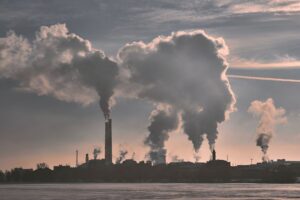When President Biden announced his plan to use the Defense Production Act to protect consumers from “Putin’s Price Hike,” the subtext was clear: securing energy independence and the transition from fossil fuels to cleaner alternatives go hand in hand.
In addition to releasing a million gallons a day from the Strategic Petroleum Reserve, the president called for authorizing the Defense Production Act to “support the production and processing of minerals and materials used for large capacity batteries.”
The president’s executive order comes as the Intergovernmental Panel on Climate Change (IPCC) says it’s now or never to take the bold steps necessary to mitigate the climate crisis. The report states there are less than even odds of limiting warming to 1.5 degrees, which is unsurprising, considering how inadequate the global response has been to date. But the IPCC also lays out clear directions to limit warming; and unpredictable, violent dictators of oil-rich countries have a way of focusing the attention and political will of our leaders.
For frontline communities, the term “energy security” means risky policies that incentivize more extraction, either of oil and gas or the minerals necessary to build electric car batteries, wind turbines and other renewable energy infrastructure. We absolutely must move quickly away from fossil fuels, and doing so means getting serious about responsible sourcing of clean energy minerals. The clean energy era can avoid repeating the mistakes of the fossil fuel era by meeting the demand for critical minerals in the most sustainable way possible: by recycling, reusing, and extending the life of materials and products we already have.
Research shows that circular minerals solutions such as recycling can significantly reduce demand. By prioritizing mineral recycling, reuse, and substitution while promoting demand reduction, the country and the world can move away from extraction reliance. The European Union has voted to enact legislation requiring recycled content, mandatory takeback, and circular economy policies for EV batteries, which the US can and should use as the foundation for its own circular economy infrastructure.
Where new mining is necessary, we must take special care to protect communities and natural resources, particularly those relied on by Indigenous peoples and protected by treaties. Unfortunately, we currently lack the tools to do so.
Current federal mining law fails to provide even basic protections for our shared public lands and the communities that call those lands home. Mining on public lands in the US is governed by the 1872 Mining Law. This law was designed to “settle” the West, in part to evict the Indigenous peoples already living there. 150 years later, our mining laws still privilege mining over all other uses, including the rights and perspectives of Indigenous communities. According to the Environmental Protection Agency, hardrock mining is the country’s number one source of toxic pollution, responsible for polluting 40% of the headwaters of western watersheds.
The Biden administration has said repeatedly that we must reform federal mining laws to ensure we avoid trapping Indigenous communities in a toxic cycle of poor health outcomes and disproportionately high rates of cancer and birth defects. A report by MSCI (a company that researches the Environmental Social and Governance impacts of financial investments) found that among US energy transition metals “97% of nickel, 89% of copper, 79% percent of lithium and 68% of cobalt” are located within 35 miles of Native American reservations and tribal lands. On the same day it issued its executive order, a federal interagency working group (convened to reform hardrock mining laws, regulations, and permitting policies in the United States) opened a public comment period and consultation process.
The clean energy transition cannot be built on dirty mining. If we truly want to secure a reliable, responsibly-sourced supply of minerals used in batteries that power electric vehicles and other clean energy infrastructure, the government should use its purchasing power to maximize reuse of recycled content and build a circular materials economy. Employing the Defense Production Act to bolster mining without addressing the shortcomings of our archaic mining laws would be disastrous to the air, water, and lands of Indigenous and other mining-affected communities. The administration must complete its own mining reform process to ensure protections for our shared public lands and the communities that call those lands home.

